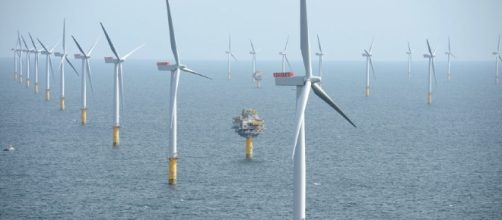As emerged from a government energy subsidy power auction held in September, the production of electricity by the many wind farms in the Northern Sea has become less expensive than using nuclear plants. The surpass represents an important victory for clean energy, which is becoming an increasingly competitive alternative to other forms of non-renewable energy supplies.
Plummeting costs
The savings of employing wind power mainly come from technological advancements that cut the costs of production by 50%. In particular, from 2007, the power of wind turbines has more than doubled and it is expected to further escalate, causing costs to hit the bottom.
It has been said that wind is not a reliable source of energy, due to its intermittent nature, it has been proven that, even if we take these considerations into account, the additional costs would not make wind power more expensive than nuclear.
Furthermore, the lower subsidies the government should grant to wind farms projects, with respect to the construction of nuclear facilities, represents another reason to opt for the former. In fact, a number of subsidies offshore wind farm developers are asking for diminished significantly in recent years thanks to optimised construction procedures. Considering that, since 2012, no electricity facility has been built in the UK without the support of taxpayers, wind power represents an extremely attractive opportunity.
The right choice
Existing coal and nuclear stations are becoming obsolete and the UK is looking for newer ways to meet the demand for power, which is expected to soar due to the take-off of the electric vehicles revolution. In 2016, the government approved a project for the construction of a new nuclear plant, the so-called Hinkley Point C, with a budget of £19.6 billion.
After 15 months, the project is already £1.5 billion over budget and a minimum 1-year delay is expected. On the other hand, as explained above, the price of offshore wind farms is constantly dropping.
As a consequence, in light of the most recent developments, the British government is thinking whether to set aside the nuclear project and focus substantially on clean energy supplies.
The advantages of this shift to offshore wind power are significant both from an environmental and a social point of view. Concerning the former, the use of wind power would reduce CO2 emissions, therefore permitting the country to meet its environmental objectives.
The construction of new wind farms would represent the opening of new working opportunities both for British and foreign companies. As Richard Harrington, the British energy minister, recently pointed out, “The offshore wind sector alone will invest £17.5 billion in the UK up to 2021 and thousands of new jobs in British businesses will be created.”


